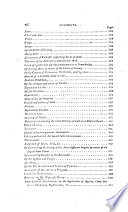 | Isaac Dalby - Mathematics - 1806 - 526 pages
...a retarding force in machines, arising from the parts rubbing against one another. 311. AXIOMS. I. Every body perseveres in its state of rest, or uniform motion in a right line, unless it be compelled to change that state by some external force. 3. The alteration or... | |
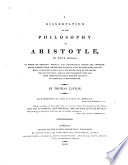 | Thomas Taylor - Philosophy, Ancient - 1812 - 622 pages
...is false ; viz. " That every body perseveres in its state of rest, or of uniform motion in a right line, unless it is compelled to change that state by forces impressed upon it." For, on the contrary, if a body is moved in a direction contrary to its natural tendency,... | |
 | John Mason Good - 1813 - 830 pages
...ur laws of motion, 1. Every body perseveres in its state of rest, or of uniform motion in a riglit line, unless it is compelled to change that state by forces impressed upon it. 2. The alteration of motion is ever proportional to the motive force impressed ; and is made... | |
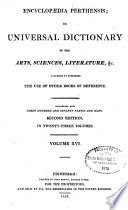 | Encyclopedias and dictionaries - 1816 - 778 pages
...axioms or laws of motion. i. EVERY BODY PERSEVERES IN ITS STATE OF REST, OR OF UNIFORM MOTION IN A RIGHT LINE, UNLESS IT IS COMPELLED TO CHANGE THAT STATE BY FORCES IMPRESSED UPON IT. — Sir Ifaac's proof of this axiom is as follows : " Projectiles perfevere in their motions,... | |
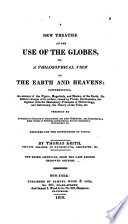 | Thomas Keith - Astronomy - 1819 - 380 pages
...is rueasm.ed by the space uniformly described in a given tiiue. GENERAL LAWS OF MOTION. LAW I.—" Every body perseveres in its state of rest, " or uniform motion in a right line, unless it is " compelled to change that state by forces impressed " thereon."—Newton's... | |
 | Thomas Keith - 1821 - 408 pages
...constantly and equally, it is called an uniform accelerative force. GENERAL LAWS OF MOTION. LAW I. " Every body perseveres in its state of rest, or uni"form..." change that state by forces impressed thereon.' — Newton's Princip. Book I. * Thus, when a body A is positively at rest, if no external force put... | |
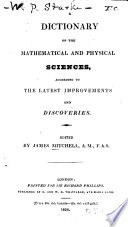 | James Mitchell - Mathematics - 1823 - 666 pages
...latter, centrifugal. The doctrine of central forces depends on the first Newtonian Jaw of motion ; viz. " Every body perseveres in its state of rest, or uniform motion in a right line, until a change is effected in it by the agency of some external force." M. de Moivre, in... | |
 | Thomas Keith - Globes - 1826 - 360 pages
...force. GENERAL LAWS OF MOTION. LAW I. "Every body perseveres in its state of rest, or uniform mo" tion in a straight line, unless it is compelled to change that "state by forces impressed thereon." — Newton's Princip. Book I.* Thus when a body A is positively at rest, if no external force put it... | |
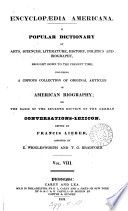 | Encyclopaedia Americana - 1831 - 610 pages
...language of Newton. I. " Every body perseveres in its state of rest, or of uniform motion in a right line, unless it is compelled to change that state by forces impressed thereon." This is called the law of inertia, and expresses the entire indifference of matter to motion or rest.... | |
| |